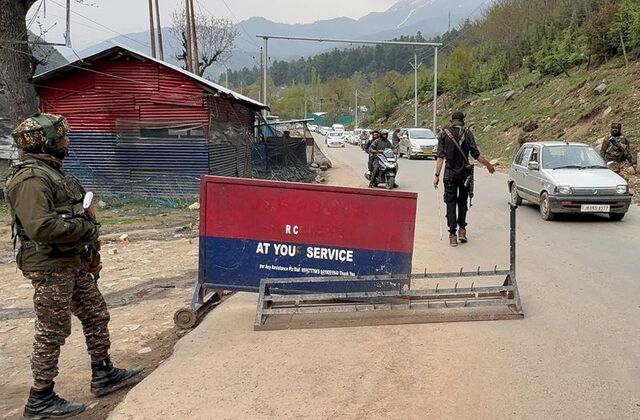Pahalgam, Kashmir – April 22, 2025
In what has been described as one of the deadliest terror attacks in Jammu and Kashmir in recent history, 28 people, including tourists and locals, lost their lives when militants opened fire near the popular Baisaran meadow in Pahalgam, Anantnag district. Over 20 others were injured, some critically, in an attack that has shocked the nation and drawn global condemnation.
The Attack: A Scenic Spot Turned Into a Scene of Horror
Around 4:30 PM on April 22, a group of armed militants—believed to be disguised in army fatigues—emerged from the forested terrain near Baisaran, a tourist hotspot known for its lush greenery and panoramic views. Without warning, they began firing indiscriminately at a group of tourists who had gathered in the area.
Eyewitnesses described the chaos as people ran for cover, while screams echoed through the valley. Among the dead were 24 Indian tourists, two locals, and two foreign nationals—one from Nepal and one from the UAE.
A chilling eyewitness account came from a young woman who survived the attack. “One of the gunmen looked at me and said, ‘Go tell Modi what happened here,’ and then walked away,” she told local media.

Who Was Behind the Attack?
The Resistance Front (TRF), a terror outfit linked to Pakistan-based Lashkar-e-Taiba (LeT), claimed responsibility for the carnage. In a statement, TRF alleged that the attack was aimed at “Indian intelligence agents” disguised as tourists, and opposed the ongoing government-led settlement initiatives in Kashmir, which they believe are altering the region’s demographic character.
Aftermath: Security Clampdown and Rescue Operations
Indian Army, paramilitary forces, and local police launched a massive search operation immediately following the attack. Helicopters were deployed for aerial surveillance, and a 5-kilometer radius around the attack site was sealed off. Over 100 individuals with suspected militant links have been detained for questioning.
Security forces believe the assailants may have received local support and used forest trails to infiltrate and escape.
Government and Political Response
Prime Minister Narendra Modi, who was on a diplomatic visit to Saudi Arabia, returned to India the same night and convened an emergency high-level security meeting in New Delhi. He later tweeted:
“The loss of innocent lives in Pahalgam is a deep wound on the soul of the nation. We will not rest until the perpetrators are brought to justice.”
Union Home Minister Amit Shah visited the site on April 23, met with survivors and families of the deceased, and assured a “zero-tolerance policy” toward terrorism.
The Jammu and Kashmir administration announced a compensation of ₹10 lakh for the families of the deceased and ₹2 lakh for those seriously injured.
Tourism in Shock: A Blow to Kashmir’s Economy
The attack has deeply impacted Kashmir’s tourism industry, which had recently begun recovering from years of political instability and the COVID-19 pandemic. Hotels, houseboats, and local businesses that rely heavily on tourism are facing cancellations and fear an economic downturn.
Despite the terror, many Kashmiri locals expressed solidarity with the victims. Protests broke out in Srinagar and Anantnag, not against the government but against terrorism. Shopkeepers and hoteliers even offered shelter to stranded tourists.
One Srinagar resident said: “Kashmiriyat is about love and hospitality. What happened in Pahalgam is an attack on our identity.”
Global Condemnation and Solidarity
The international community reacted swiftly and strongly:
-
United States: “We condemn this heinous act of terrorism. Our thoughts are with the victims and the people of India.” – U.S. State Department
-
United Nations: Secretary-General António Guterres called the attack “a tragic reminder of the need for collective global efforts against terrorism.”
-
Israel, UK, Australia, Nepal, UAE, and many other countries expressed condolences and support.
The Bigger Picture: Rising Tensions and Security Concerns
This attack has raised serious questions about the security infrastructure in Kashmir and has triggered renewed debates around counter-terrorism strategies, cross-border militancy, and the political future of the region.
With the G20 Tourism Working Group scheduled to hold a summit in Srinagar in June, the government is likely to intensify operations and tighten security across the Union Territory.


